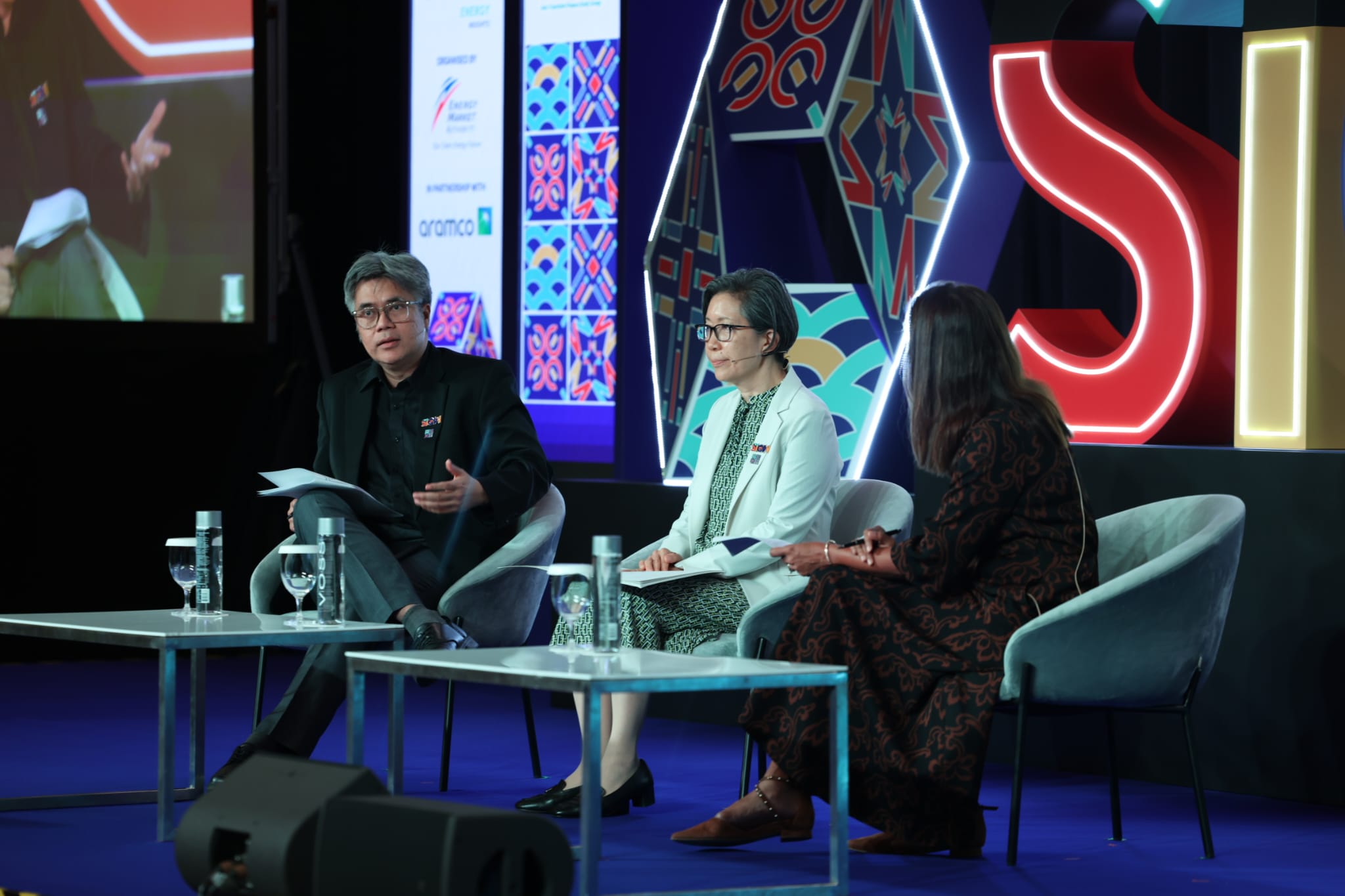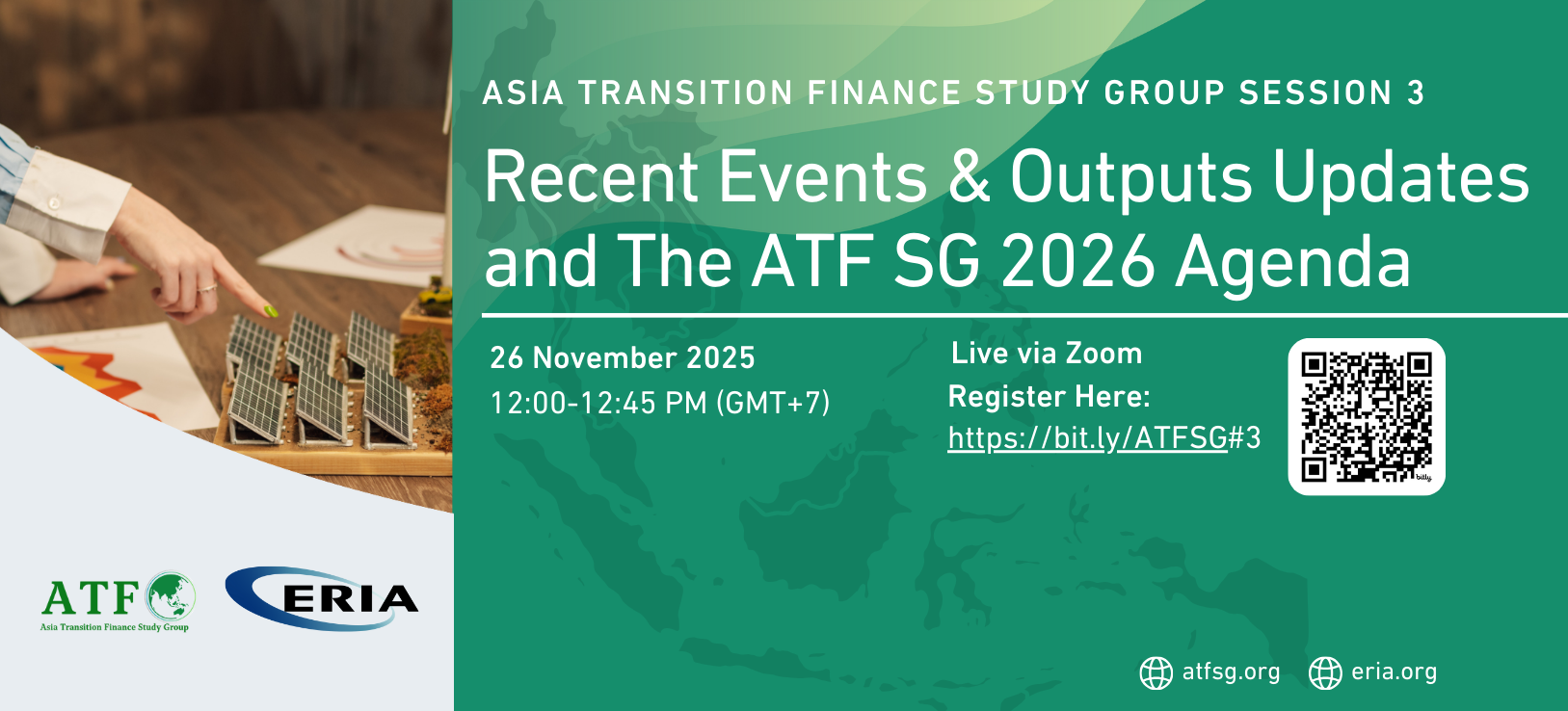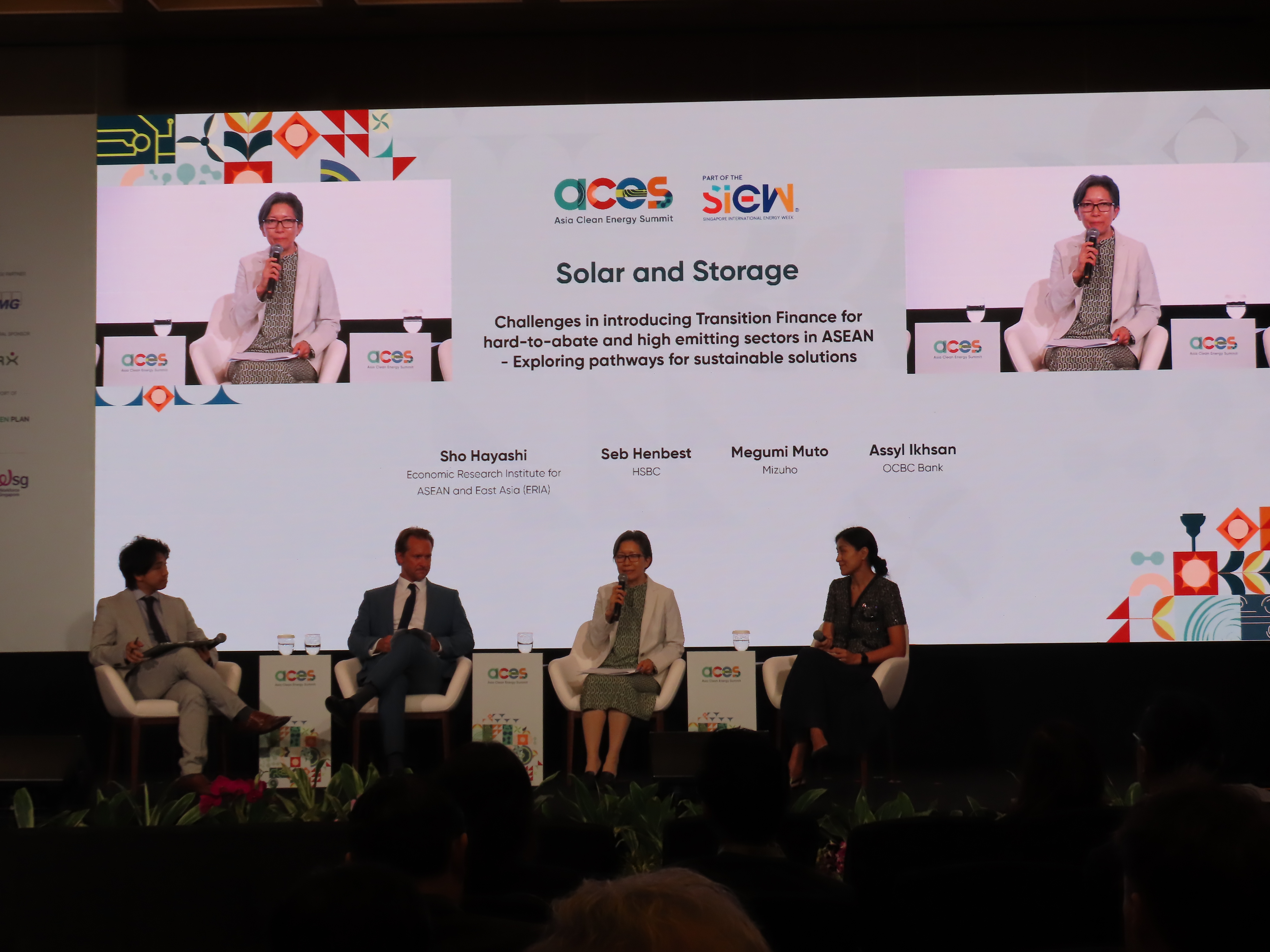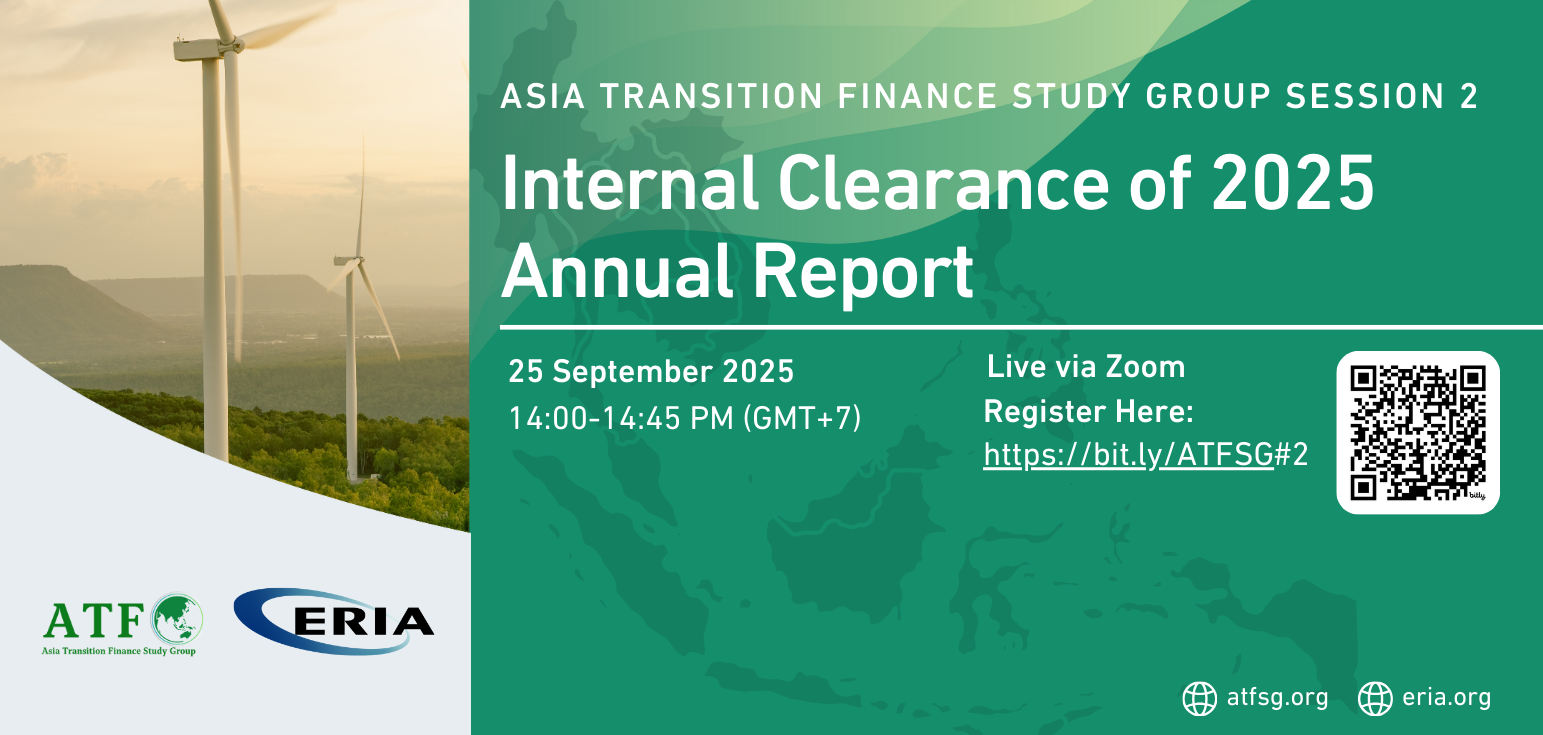Advancing Transition Finance in Asia: Unlocking Investment through Solutions, Systems, and Carbon Markets
30 October 2025
Singapore, 29 October 2025 - The Asia Transition Finance Study Group (ATFSG), supported by its secretariat ERIA, contributed to the discussions at the Singapore International Energy Week (SIEW) Energy Insights 2025 held on 29 October.
Dr. Nuki Agya Utama, Director for Energy Policy and Head of Asia Zero Emission Center, shared insights on advancing transition finance across the region. During his presentation, Dr. Nuki emphasized the need for practical pathways to mobilize investments that support a just and orderly transition in Asia. He highlighted ERIA’s collaborative efforts with partners such as the Asian Development Bank (ADB) and Japan’s Ministry of Economy, Trade and Industry (METI), particularly through the ERIA–ADB–METI Joint Report and the newly released Technology List and Perspectives for Transition Finance in Asia. These initiatives aim to provide financial institutions and policymakers with concrete tools to evaluate transition technologies and support decarbonization in key sectors.
Joining the same panel was Dr. Megumi Muto, Senior Managing Executive Officer and Deputy Group Sustainability Officer at Mizuho Financial Group, who represented the Financial Institution (FI) Lead of the ATFSG. Dr Muto presented the ATFSG’s achievements so far and its latest findings on practical enablers to accelerate transition finance implementation, including solutions and systems that support energy transition in ASEAN.
During the panel discussion, Dr. Nuki underscored that advancing transition finance in ASEAN requires strong regional cooperation, pragmatic financing mechanisms, and the alignment of technology, policy, and market systems to achieve net-zero goals. Bridging the time gap between investment and operation requires three things: clarity, credibility, and coordination. In this context, commitment from the government is crucial. What mechanisms could help to close the gap include gradually phase out fossil fuel subsidies while protecting vulnerable consumers, simplify permitting under 12 months for renewable projects, establish transparent PPAs with revenue clarity, and strengthening mandate efficiency regulations across hard-to-abate and high-emitting sectors.


